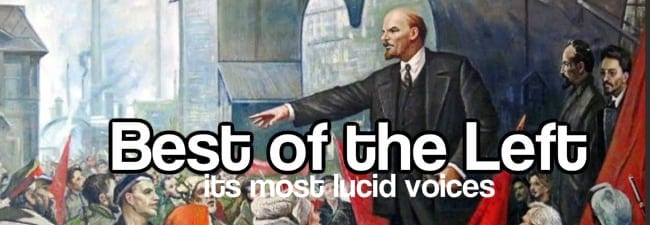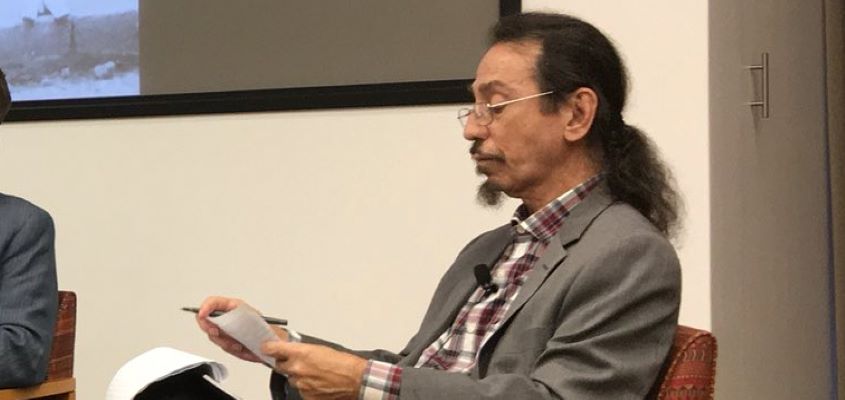
Semi-deserted Milan square.
If a situation with the Covid-19 coronavirus infection follows the same scenario as the SARS epidemic, then by April- May the problem will be less acute, opines in this interview with RT the academic Alexander Chuchalin, the Head of Department of Hospital therapy of the Russian National Research Medical Pirogov University. In his view, the Russian healthcare system has done its best to protect the country from coronavirus. The doctor also says that, contrary to popular belief, infection with Covid-19 can be accompanied by a runny nose.
Q: Not only are you one of the best pulmonologists in Europe, you are also in the main risk group now for coronavirus. Could you, please, give some recommendations for people of your generation and those who are younger, those who, as we see, are really susceptible to high mortality — especially in China, Italy, and Iran.
A: In order to understand the risk groups for this disease: first of all, these are people who come into contact with animals that represent a biological reservoir. For example, in 2002 it was African cats, in 2012 it was camels, and now the science is a little confused, it has not been fully established. There is more evidence that this is a certain kind of bat — the one that the Chinese eat.
This bat spreads the coronavirus through its bowel movements. After that a seeding process takes place. Let’s say, it’s a seafood market or some other products, and so on. But, right now we’re talking about an epidemic, we are talking about people infecting people. Therefore, this phase has already arrived. The infection spreads person to person.
Coronaviruses are a very, very common viral infections, and people encounter them many, many times in their lives. Within a year a child carries diseases that we call acute colds up to ten times. And behind this acute cold are certain viruses.
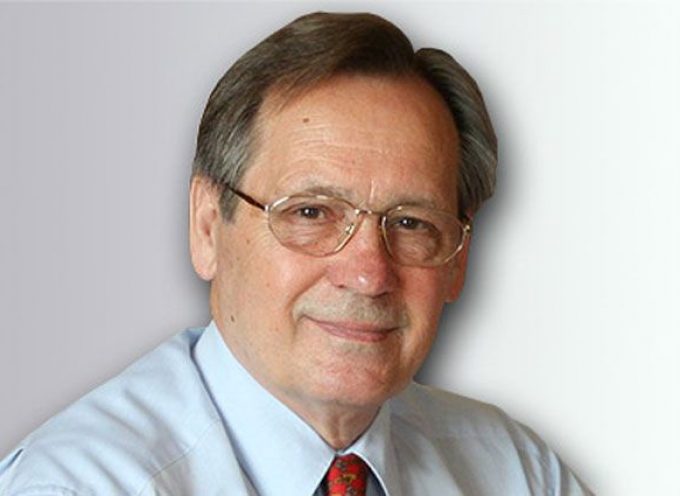
Prof. Chuchastin
And the second place in its prevalence is occupied by the coronavirus. The problem is that these seemingly harmless pathogens were dismissed, and they could never understand the cause-and-effect relationship between a common cold and a virus. If, say, a child has a cold, he has a runny nose, what will follow? And so on. For about two weeks, a child or an adult gets sick — and all this disappears without a trace.
But in 2002, 2012, and now in 2020, the situation has changed qualitatively. Because the serotypes that have started to circulate … they affect the epithelial cells.
Epithelial cells are cells that line the respiratory tract, gastrointestinal tract, and urinary system. Therefore, a person infected has pulmonary symptoms and intestinal symptoms. And in the study of urine tests, too, allocate… with such a viral load.
But these new strains, which we are now talking about, they have these properties — to come into contact with the second type of receptor, the angiotensin-converting enzyme. And this receptor is associated with such a serious manifestation as cough.
Therefore, a patient who has symptoms of damage to the lower respiratory tract, a characteristic sign is a cough. This affects the epithelial cells of the most distal parts of the respiratory tract. These breathing tubes are very small.
Q: Distal, is it distant?
A: It’s far and small in diameter.
Q: So this is what we have next to the bronchi?
A: This is bronchi, then we have bronchioles, respiratory bronchioles. And when the air, the diffusion of gases goes on the surface of the alveoli, they pass just this section of the respiratory tract.
Q: That is, the primary symptom is a cough…
A: No, the first is a runny nose, and a sore throat.
Q: They say that there is no runny nose.
A: No, these are big data issues. 74 thousand medical records were processed, and all of them have rhinorrhea (runny nose. – RT). When you are told this — there are really some nuances. Biology is like this. The biological target of the virus is epithelial cells. The nose, oropharyngeal region, trachea, and then small bronchioles, targeting these regions are especially dangerous to humans. And it turned out that, having this mechanism, the virus leads to a sharp breakdown of the immune system.
Q:Why?
A: An explanation that science gives today is that a protein called interferoninduced protein-10 is involved in the process. It is with this protein that the regulation of innate immunity and acquired immunity is associated. How should we see this? As a very deep damage to lymphocytes.
Q: So you can see lymphocytes falling immediately on the general test?
A: Yes. And if there are white blood cells increase, platelets will increase, and it is more stable lymphopenia, that is, the lymphotoxic effect of the viruses themselves. Therefore, the disease itself has at least four outlined stages. The first stage is virusemia. A harmless cold, nothing special. Seven days, nine-approximately in this interval.
But starting from the ninth day to the 14th, the situation changes qualitatively, because it is during this period that viral and bacterial pneumonia is formed. After damage to epithelial cells in the anatomical space of the respiratory tract, colonization of microorganisms occurs, primarily those that inhabit the human oropharyngeal region.
Q: Do you mean bacteria that is already there?
A: Bacteria, Yes. Therefore, these pneumonias are always viral and bacterial.
Q: So the virus, so to speak, fills the alveoli, where some bacteria live all the time? And they live somewhere by themselves, in some quantity?
A: In general, we believe that the lower respiratory tract is sterile. This is how the defense mechanism works for the lower respiratory tract.
Q: There’s nothing there?
A: It’s not inhabited. When the virus has entered and it has broken this barrier, where there was a sterile environment in the lungs, microorganisms begin to colonize and multiply.
Q: So it’s not a virus that causes pneumonia? Still, pneumonia is caused by bacteria, of course.
A: It’s the association of virus-bacteria.
This is the window where the doctor must show his skill. Because often the virusemic period is like a mild disease, like a slight cold, malaise, runny nose, a slight temperature is small, subfebrile. But the period when the cough increased and when there is a shortness of breath — these are two signs that say: stop, this is a qualitatively different patient.
If this situation is not controlled and the disease progresses, then more serious complications occur. We call it respiratory distress syndrome, shock. A person cannot breathe on their own.
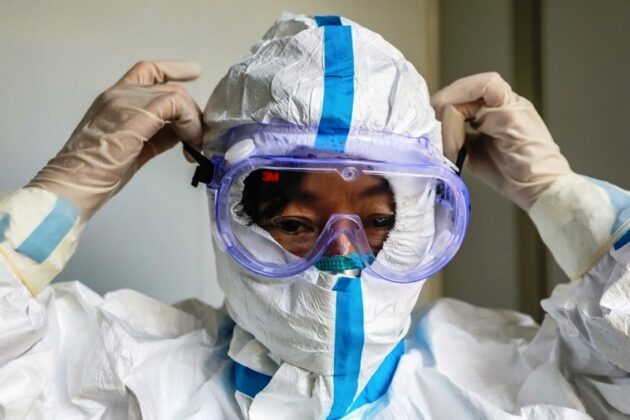 Q: Pulmonary edema?
Q: Pulmonary edema?
A: You see, there are a lot of different edemas of a lung. In fact, it depends on how it happens. To be precise, we call this non-cardiogenic pulmonary edema. If, say, cardiogenic pulmonary edema can be treated with certain medications, then this pulmonary edema can only be treated with a mechanical ventilation machine or advanced methods such as extracorporeal hemoxygenation.
If a person transfers to this phase, the immunosuppression caused by the defeat of the acquired and innate immunity becomes fatal and the patient is joined by such aggressive pathogens as Pseudomonas aeruginosa, fungi. And the cases of death that occurred — 50% of those who were on artificial ventilation for a long time, the alveoli are all filled with fungi.
Fungi appear during the stage of deep immunosuppression. What is the fate of the man who endured all this? That is, he suffered virusemic period, he suffered viral-bacterial pneumonia, he suffered respiratory distress syndrome, non-cardiogenic pulmonary edema, and he suffered septic pneumonia. Will he be healthy or not? And, in fact, today the world is concerned about this: what is the fate of those 90 thousand Chinese who have suffered a coronavirus infection?
Q: But those 90 thousand — they recovered by themselves, they weren’t kept on on a ventilator, they did not get fungi. ARI or acute respiratory infection, correct?
A: But the problem itself is very important. Because practical medicine is faced with the fact of a sharp increase in the so-called pulmonary fibrosis. And this group of people who have had a corona virus infection develops fibrosis of the lung within a year.
Q: That is, when the lung tissue thickens?
A: Yes. A lung becomes like burnt rubber, if the analogy is to be made.
Q: Say, you get an elderly person who has been accurately diagnosed with a coronavirus. And he is not yet on the ninth day, that is, he does not need to be put on a ventilator yet. How will you treat him?
A: You know what the problem is: we do not treat such patients yet, because there are no medications, medicines that should be used in this phase. There is no panacea. Because a drug that would act on virusemia, on the viral-bacterial phase, on non-cardiogenic pulmonary edema, on sepsis — is a panacea, this drug doesn’t exist.
Because if we go back to the experience of 2002, when we saw the vulnerability of medical personnel, doctors and nurses were recommended to use Tamiflu and oseltamivir — an anti-influenza drug. And with certain serotypes of the coronavirus, indeed, the mechanism of introduction into the cell is the same as with influenza viruses. Therefore, it has been shown that these drugs can protect individuals who are at high risk of developing this disease.
Or, he is identified as a carrier of the virus, he is given these drugs and so on. But this, I want to say again, has no serious evidence base. The situation that is most threatening, because it determines the fate of a person. A cold is one thing. And a viral-bacterial pneumonia is quite another, it is a fundamentally different thing.
And here it is very important to emphasize that it is problematic to help such a patient only with antibiotics. There must be a combination therapy, which includes means that stimulate the immune system. This is a very important point.
Q: What do you mean? So, relatively speaking, you will prescribe him Amoxiclav with some kind of immunomodulator?
A: Yes, we would usually prescribe fourth-generation cephalosporins, not Amoxiclav, in combination with vancomycin. This combination is broad, because very quickly there is a process of a change of gram-positive and gram-negative flora. But what immunomodulatory drug to prescribe is a question for scientific research.
So, we understand that the immune system will suffer dramatically. We understand the high vulnerability of a person to the infection that begins to colonize the respiratory tract. So, unfortunately, we don’t have a clear line. But what really can help such patients in this situation is immunoglobulins. Because this is substitution therapy.
And therefore, such patients are prescribed high immunoglobulins so that they do not develop sepsis, at least they do not enter the sepsis phase. American doctors used this drug in their Ebola patients. This is a group drug, an analog of nucleosides. This is a group of drugs that are used for herpes, cytomegalovirus, and so on.
Q: So this is antiviral or antiviral-supporting therapy, right?
A: No, this is a drug that still acts on the mechanisms in the cell that resist virus replication. Here in my hands (photo of US President Donald trump. – RT). He gathered all the top people who could speak out on promising drugs. Two questions that he raised, he was preparing for this conference. The first question is: how ready are scientists in the United States of America to introduce the vaccine?
Q: Eighteen months.
A: Yes, absolutely. That’s two years. He asked what in this case? Does the country have drugs that could protect? And, as a matter of fact, they said: Yes, there is such a drug.
Q: What?
A:What kind of drug is this? It’s called Remdesivir
Q: Let’s look at it.
A: That’s what scientists said, given the experience that we have, and discussions and so on. Although, of course, there are other drugs that are being actively studied. In general, this direction is very interesting: in fact, it is considered promising. The use of mesenchymal stem cells is considered promising. But at what stage?
Q: As a person who has been doing this for many years, treating everything from asthma to pneumonia, can you somehow try to predict the development of this epidemic, for example, in Russia?
A: I want to say that if we compare Russia with the surrounding world in case of the coronavirus of 2002. We didn’t have a single patient here.
Q: Maybe we just didn’t diagnose them?
A: As you know, there are strong aspects of Russian healthcare in this situation, and I would like to stress this. This is the work of our sanitary and epidemiologic services. They really did their best to protect our country. This is on one side, as if punitive measures. And on the second side is the work of the Vector Research Institute, which made diagnostics for the coronavirus in a very short time, and they did everything absolutely. And it was tested at the CDC, and they got a certificate indicating high specificity and sensitivity.
Q: The Vector diagnostic kit is the only certified
A: Yes.
Q: The virus is already in Russia, no matter how much the sanitary service tries. How do you think it will develop? Will it end in the spring, for example, with the arrival of summer?
A: You know, I think the picture repeats what it was then with the SARS. If you remember…
Q: Then? Do you mean in 2002? When it was SARS?
A: Yes, that’s the one. If we follow this scenario, we should say that somewhere in April or May this problem will become less acute.
Q: Just because of the seasonal cessation of respiratory infections?
A: Yeah. The climate factor and a number of other factors. Now, the trouble, of course, comes to us not from China, but from Europe. Those who return from these countries, primarily from Italy, today, remember: Carlo Urbani. He accomplished a lot of things. I think this is just a hero of a doctor who has done so much. He was a virologist from Milan.
Q: Back in 2002?
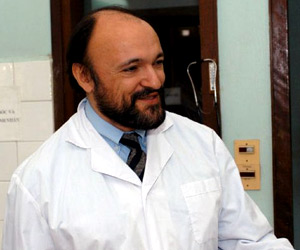
Dr Urbani: A heroic example.
A: He was a WHO expert. I met with him through the World Health Organization. He was on the list as an expert on coronaviruses. And then he was sent to Hanoi. They were dispatching doctors, and he got to go to Vietnam. And in Vietnam, when he arrived, there was a panic. Their doctors stopped coming to work. Their medical staff, also. There had patients, but there wasn’t any medical personnel and no doctors.
He assessed the situation. With difficulty, he managed to break it, to remove this panic situation that was then in the hospital. But most importantly, he began to communicate with the government and said: close the country to quarantine. That’s where it all came from. It came from Urbani. They started to fight back.
Q: The Vietnamese?
A: Yes, the government of Vietnam. That this would affect the economy, tourism, and so on. But, he found these words, he convinced them. And Vietnam was the first country to come out of this. And he thought his work was done. He collected material for a virological examination and boarded a plane to Bangkok.
He was supposed to meet with the American virologists there. During the flight, he realized that he got ill. He got sick, just like those poor Vietnamese in that hospital. And he began to write everything down and describing it. This is this exact time, and this is how I feel.
Q: The flight was about three hours?
A: Yes, about three hours. And during these three hours, he became an invalid who couldn’t get up and move on his own. Here we see how the window itself works, and we understand when pneumonia joins — this window can be extremely, extremely short in duration. And when he was barely able to get down the aircraft ladder, he left the last entry: “I’m waving to them so they don’t come near me.”
That is, American virologists wanted to meet Urbani, but he said: let’s not [have] contact. He died in an intensive care unit. And there was an autopsy. And from his lung tissue was isolated a strain that was named after him – “Urban I-2”. Here is a very true story that I am telling you. A tragedy, of course.
Q: What would you recommend to a person who finds himself… Well, we have already agreed that the virus is in the general population. We can’t really control it anymore.
A: Are you asking for some simple recommendations? First of all, take a good care for the nasal mucosa and oropharyngeal area.
Q: To wash it with salty water?
A: Yes, wash it thoroughly. But “lors” – non-prescription medications and sinus cleaners to stop running nose and for an effective lavage. That is, the feeling of free unobstructed breath should come after all. The second thing is the oropharyngeal area behind the uvula. And there, too, you need to make a good lavage of the oropharyngeal region.
Q: So you don’t just have to squirt it up your nose, you have to gargle it deep down your throat?
A: Yes, and rinse it out. And don’t be lazy. Do do it until you get a feeling of clean, good airways. Of all the ways, this is the most effective. I would advise those people who can afford to buy a nebulizer or…
Q: Do you mean, it’s aerosol, right? With ultrasound?
A: Yes. And it allows the hygiene of the upper respiratory tract to be brought to a good state. When a cough starts, it is desirable to still apply the medications that we prescribe for patients with bronchial asthma. This is either Berodual, or Ventolin, or Salbutamol. Because these drugs improve mucociliary clearance, relieve spasm.
Q: You mean expectorant?” Mucolytic ACC?
A: Yes, ACC and Fluimucil. And what you can’t do is use glucocorticosteroids. The virus replication rapidly increases by them.
Q: What does that mean?
A: Corticosteroids is prednisone, methylprednisolone, dexamethasone, betamethasone.
Q: So you don’t need to inject hormones, relatively speaking, if you have a viral infection?
A: There are inhaled steroids. But there are patients with asthma who are ill and are on this therapy. But this has to be a tailor-made solutions. Of course, 2020 will go down in medical history as a year of a new disease. We must admit that we have understood this new disease. Two new pneumonias have arrived. First is pneumonia, which is caused by e-cigarettes, vapes, and now in the United States, people have died from this…
Q: …several thousand teenagers. Yes, this is a well-known fact, and how to treat it is unclear. You put them on a ventilator — they die immediately.
A: Yes. Do you understand what the problem is? Here they develop those changes in the lungs that occur during this process. They seem to be similar (to the changes from the coronavirus). This is respiratory distress syndrome, which we are talking about. The literature raises very serious questions: the role of coronaviruses in transplantation. One of the problems is obliterating bronchiolitis, which occurs especially during transplantation.
Q: A lung transplant?
A: Yes, lungs and bone marrow. Stem cell. As a matter of fact, everything is well done, everything is normal, the person has responded to this therapy, and the problem of respiratory failure is beginning to grow. And the cause of these bronchiolitis was caught — it is a coronavirus… That is, new knowledge has come.
How to treat Coronavirus infection COVID-19 in Russian
![]() Don’t forget to sign up for our FREE bulletin. Get The Greanville Post in your mailbox every few days.
Don’t forget to sign up for our FREE bulletin. Get The Greanville Post in your mailbox every few days. 
